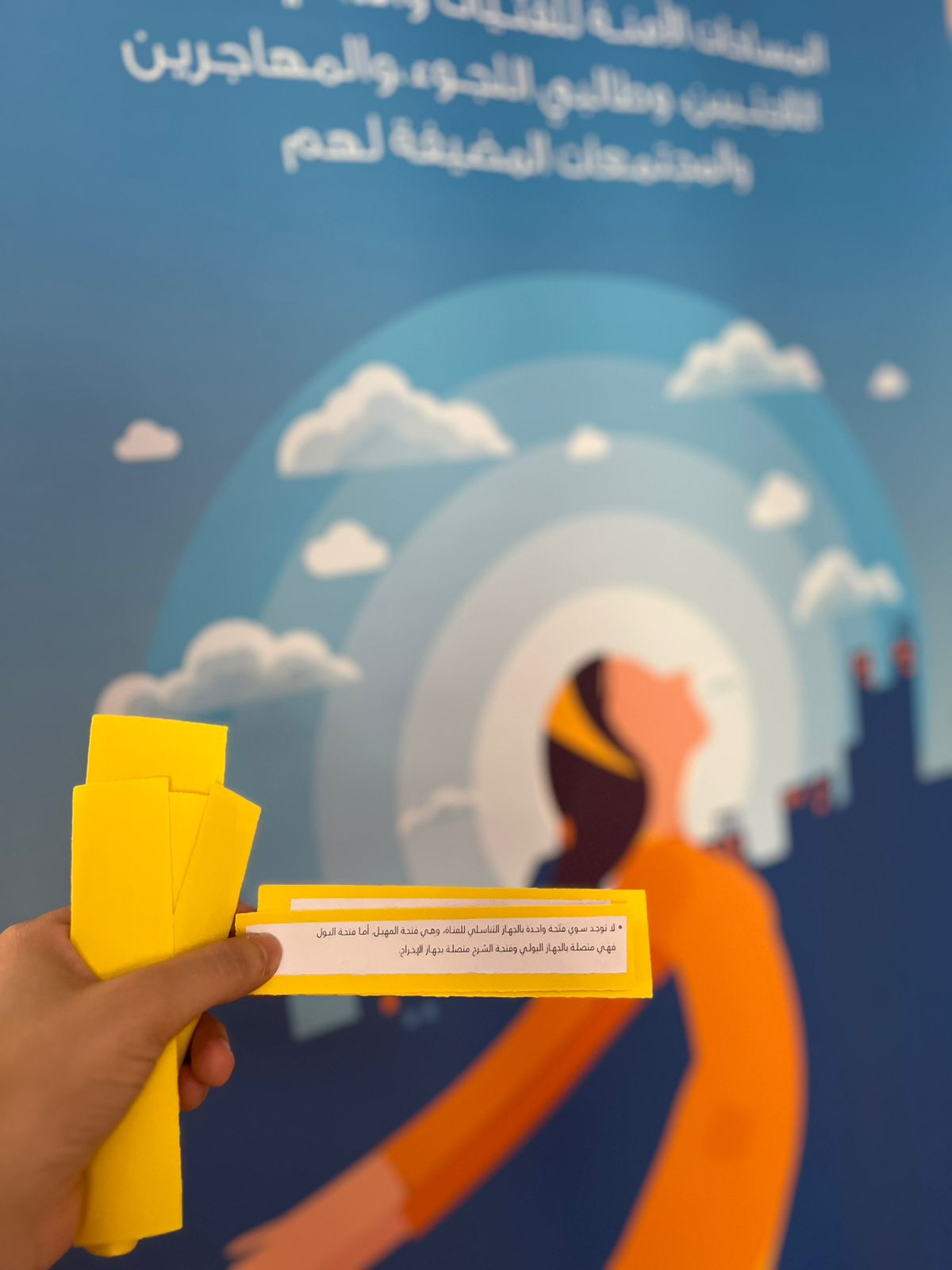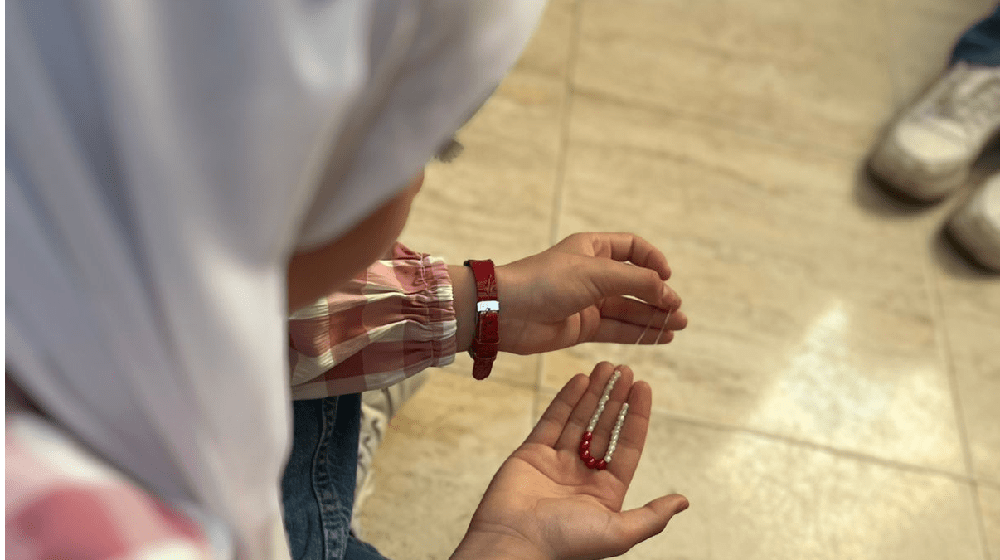Over 100 women and girls participated in activities commemorating Menstrual Hygiene Day on May 28 at the Women and Girls Safe Spaces, where they learned about the importance of personal hygiene during the menstrual cycle and ending the stigma around menstruation.
Under the theme “Making menstruation a normal fact of life by 2030,” three workshops were implemented during the day including one exercise targeting the mothers of young girls on how to educate their daughters on menstruation cycles, health and hygiene issues, with the support of the Embassy of Norway and the Embassy of Switzerland.

Celebrated on May 28, the global menstrual hygiene day aims to break taboos about periods as well as raise awareness about current gaps in menstrual products, education and facilities.
A separate workshop was conducted for young girls and adolescents to ensure they can participate more actively and confidently among the same age group. The workshop, titled “My story with the Color Red,” served as an exercise and opportunity for young girls and adolescents to share their stories about menstruation.
Participants were also invited to engage in the global campaign activity of crafting bracelets consisting of 28 beads - 23 white beads and 5 red - to represent the menstrual cycle.
Sports activities were also planned that included messages and important information about menstrual cycle and personal hygiene, characteristics of puberty, proper nutrition and misconceptions about menstruation.
A 16-year-old girl from Syria who participated in the activities said that she learned that menstruation is a normal part of life and that “there is nothing to be ashamed or afraid of.”
UNFPA Egypt offers comprehensive gender-based violence services for refugee women and girls through 11 Safe Spaces in six governorates of Egypt. Safe Spaces are operated by the Ministry of Youth and Sports and Etijah, providing case management services, mental health and psychosocial support services, emergency housing, legal and medical services, reproductive health services, cash assistance as well as vocational skills training.
The Safe Spaces function as an important physical location for refugees, migrants and asylum seekers to socialize and re-build their social networks, receive social support, and acquire different skills.


